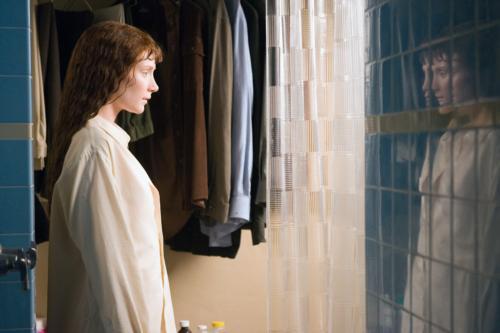
News
Cambridge Residents Slam Council Proposal to Delay Bike Lane Construction

News
‘Gender-Affirming Slay Fest’: Harvard College QSA Hosts Annual Queer Prom

News
‘Not Being Nerds’: Harvard Students Dance to Tinashe at Yardfest

News
Wrongful Death Trial Against CAMHS Employee Over 2015 Student Suicide To Begin Tuesday

News
Cornel West, Harvard Affiliates Call for University to Divest from ‘Israeli Apartheid’ at Rally
“Lady” Drowning in Cliché

Most viewers would approach a drama where characters are “guardians” and “healers” with raised eyebrows. Add a few trite utterances of “one cannot give up!” and “does man deserve to be saved?” to the dialogue, and you’d get little more than pure skepticism.
There’s enough of both in “Lady in the Water,” the first film from the adamantly-PG-13 director M. Night Shyamalan since the recent public shipwreck of his relationship with Disney and his jump to the Warner Bros. vessel.
But skepticism is hardly what you’ll need to enjoy this film. Instead, try forgetfulness.
For those willing to ignore his past films, Shyamalan has composed an endearing “bedtime story.” For the rest, he’s simply navigating a sea of cliché lines and plot devices—and getting lost. The choice belongs to the viewer.
Filming in his usual Pennsylvania locale, Shyamalan creates an patent allegory for multicultural American society. The apartment complex, where much of the story happens, a Benetton-like array of races and personalities, from chain-smoking twenty-somethings to a weightlifter with a preference for his right arm. “Melting pot” doesn’t begin to do it justice.
In this setting, building maintenance man Cleveland Heep (Paul Giamatti) finds an otherworldly woman (Bryce Dallas Howard) from an underwater society. Soon, the whole building is wrapped up in her tale as Heep searches for a way to send her home.
In the maelstrom that ensues, Giamatti becomes a great compass for the viewer’s voyage. When he is on-screen, the picture becomes a bit more serious, a bit more honest, and a lot more believable. His half-minute elegy at the movie’s close could save any film.
However, his character isn’t anything new. From Bruce Willis in “The Sixth Sense” to Mel Gibson in “Signs,” Shyamalan’s leads are always the same—tragedy-stricken, under-achieving men with a potential for love, surpassed only by their propensity for the metaphysical.
And as in so much of art, what better inspires a man than a beautiful damsel in distress? Howard awakens Giamatti from an apathetic stupor and restores his sense of purpose.
Yet The Lady is much less enchanting than that. She is a retread of a retread, in a way—a cross between Milla Jovovich’s naively gorgeous goddess in “The Fifth Element” and a cherubic elf from “The Lord of the Rings.” Although this was my first close encounter with Howard, she didn’t awaken me from anything.
For Shyamalan fans, however, there is redemption from these sins in the self-awareness that permeates every carefully orchestrated shot. Love it or hate it, when watching this film, it’s impossible to escape its director.
In a less-than-subtle move, Shyamalan adds a film critic to the cast of characters, all but shattering the fourth wall from the movie’s outset. But when the Lady asks Shyamalan’s character to do nothing short of—seriously—saving the world, ignoring the director’s metatextual presence is a lost cause. Even off-screen, he is visibly descriptive with his camera work, framing original point-of-view shots and probing angles that sustain the film’s suspense.
It is hard to decide whether self-awareness can redeem Shyamalan’s lack of originality; after all, as mythologist Joseph Campbell wrote, all epics follow the same progression along their “Hero’s Journey.” But only diving headlong into this bedtime story can save you from a feeling of déjà vu.
—Reviewer Pierpaolo Barbieri can be reached at barbier@fas.harvard.edu.
Want to keep up with breaking news? Subscribe to our email newsletter.
